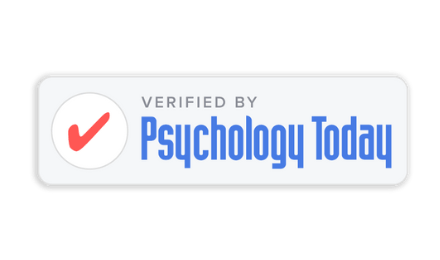Relationships come in all shapes and sizes, with each individual bringing their unique set of experiences and attachment styles to the partnership. One such attachment style that can significantly influence romantic relationships is the anxious attachment style, often characterized by a strong need for reassurance, heightened emotions, and relationship insecurities.
Understanding, addressing, and adapting to an anxious attachment style is essential for fostering healthier relationship dynamics and promoting individual growth. Blue Sky Wellness Clinic offers personalized counselling services to guide individuals and couples through the challenges associated with anxious attachment styles, helping to transform relational patterns and strengthen bonds.
By unpacking the complex nature of anxious attachment styles in relationships, this blog aims to empower readers to recognize the impact of these patterns on their romantic connections and take proactive steps toward addressing the associated challenges. Through self-reflection, practical strategies, and the transformative power of counselling, individuals and couples can cultivate more secure, healthy relationships that foster lasting fulfilment and personal growth.
Exploring Anxious Attachment: Key Characteristics and Development
Anxious attachment, one of the four primary attachment styles, often stems from inconsistent or unpredictable caregiving during childhood. This pattern may lead individuals to develop a strong need for reassurance, heightened emotions, and relationship insecurities in their adult romantic relationships. Key characteristics of anxious attachment can include:
- Preoccupation with the relationship: Individuals with anxious attachment often worry about their partner’s commitment and feel consumed by thoughts of their relationship.
- Fear of abandonment: Those with an anxious attachment style may exhibit a heightened fear of being abandoned or rejected, leading to clingy or controlling behaviour.
- Heightened sensitivity to partner’s emotions: Anxiously attached individuals tend to be hyper-attuned to their partner’s emotional cues, interpreting minor fluctuations as signs of dissatisfaction or potential relationship issues.
- Low self-esteem: Individuals with this attachment style often struggle with feelings of unworthiness or inadequacy, exacerbating their relationship fears and insecurities.
Recognizing these characteristics can help individuals identify whether they or their partner possess an anxious attachment style, enabling them to take informed steps toward addressing challenges and fostering growth.
Common Challenges and Pitfalls of Anxious Attachment in Romantic Relationships
Anxious attachment styles can contribute to a range of challenges and pitfalls in romantic relationships, including:
- Trust issues: Anxiously attached individuals may struggle with trusting their partner’s commitment, often leading to a cycle of constant reassurance-seeking and escalating relationship fears.
- Communication difficulties: The emotional intensity characteristic of anxious attachment can impede effective communication, resulting in misunderstandings, arguments, and tension.
- Emotional rollercoaster: The heightened emotions associated with anxious attachment often create a fraught relationship dynamic, with both partners experiencing emotional highs and lows that can be difficult to navigate.
- Codependency: The need for constant reassurance can foster codependent relationship patterns, hindering individual growth and creating an imbalanced partnership.
Developing Healthier Relational Patterns: Strategies for Addressing Anxious Attachment
To build more secure, resilient, and fulfilling relationships when dealing with an anxious attachment style, individuals and couples can implement the following actionable strategies:
- Establish boundaries: Develop clear personal and relational boundaries to foster a sense of safety and security within the relationship. For example, set boundaries around communication expectations, availability, and emotional support.
- Improve communication: Enhance communication skills by practising active listening, expressing emotions effectively, and seeking clarification when needed. This can help diffuse tension and foster mutual understanding between partners.
- Cultivate self-awareness: Engage in self-reflection and introspection to better understand personal triggers, fears, and patterns. This heightened self-awareness can help individuals regulate emotions, seek reassurance in more constructive ways, and recognize when personal insecurities are influencing the relationship.
- Seek support: Reach out to friends, family, or mental health professionals for guidance and encouragement. Surrounding oneself with a supportive network can help foster personal growth and facilitate healthier relational dynamics.
Transforming Anxious Attachment: The Role of Professional Counselling
Professional counselling can play a transformative role in addressing anxious attachment styles in relationships by offering personalized support, guidance, and resources. Blue Sky Wellness Clinic provides tailored counselling services to individuals and couples dealing with anxious attachment, helping to promote healthier relational patterns and stronger emotional bonds. Some benefits of counselling for anxious attachment include:
- Therapeutic insights: Counsellors can help individuals recognize the source of their anxious attachment, identify patterns and triggers, and devise tailored strategies for addressing related relationship challenges.
- Improved communication skills: Through counselling, individuals and couples can develop more effective communication techniques, fostering healthier and more resilient partnership dynamics.
- Emotional Regulation: Counsellors can guide clients in developing emotional regulation skills, enabling them to better manage the emotional highs and lows associated with anxious attachment.
- Ongoing support and resources: Blue Sky Wellness Clinic offers continued support and access to resources that can support clients on their journey toward more secure, fulfilling relationships.
Decoding Anxious Attachment Styles: Its Implications in Love and Relationships
By understanding the complexities of anxious attachment styles, recognizing patterns, navigating challenges, and harnessing the transformative power of professional counselling, individuals and couples can foster healthier relationship dynamics and promote individual growth.
Confronting and addressing anxious attachment is essential to building more secure, emotionally resilient, and fulfilling romantic relationships. Blue Sky Wellness Clinic’s personalized anxiety counselling services offer invaluable guidance and support to empower those grappling with anxious attachment to foster the lasting relational change they desire.








